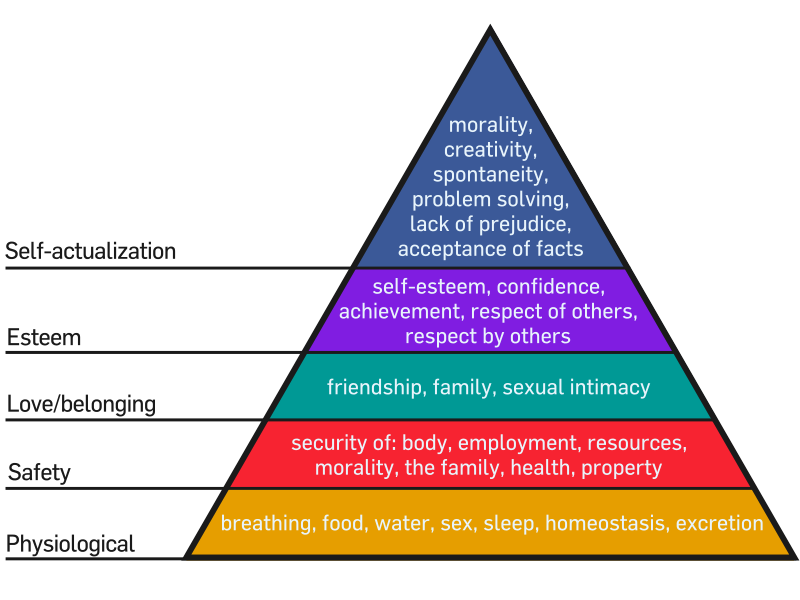The Marketing Psychology of Need
You have an incredible product. You’ve told the world about it. You’ve described every feature in glowing terms – exquisite, handcrafted, cutting-edge, one-of-a-kind, stunning. You wait for the purchases to roll in. You think you marketing psychology game is on point.
Silence!
No one seems interested. What’s the problem? You’ve ignored the golden rule of marketing psychology: People don’t buy products; they buy solutions.
Define the Need
If every blog post you write and every video you create sounds like a product description, then you need a new approach. Customers don’t want to hear how great you are. They want to know how you can help them.
That’s another way of saying, “Define the need.” What challenges does your audience face? What’s missing in their lives? What drives them crazy? What gets in their way?
If you don’t know, ask them. Whether you chat people up at networking events, put a questionnaire on your website, or fund a major survey, it’s important to do your research first.
Marketing Psychology Tip #1
Selling the product means selling the need.

State the Problem
You know your audience’s problem. You assume they do, too. So why do you have to state it? Can’t you stay positive and skip to the solution?
In most cases, no. That’s the lazy approach to marketing psychology. We’ve all done it, but most of the time it yields less-than-impressive results.
Try to sell a suburban family a water filter. “Why would we need to spend money on that?” they’ll ask. Tell them their tap water contains toxic chemicals that could jeopardize their health, and they’ll beg you for one.
Show a stock broker an emergency preparedness bag and he’ll shrug his shoulders. Tell him there’s a 33.7% chance than an EMP will strike tomorrow, wipe out his electricity and destroy his food supply, and before you know it, he’ll ask for the price.
While some iconic brands can get away with short cuts, most small businesses can’t, particularly if they’re still struggling establish their identity and draw in new customers.
Marketing Psychology Tip #2
Never assume that people are aware of their own needs.

Create a Need
Water filters and emergency supplies are extreme examples, but what if you sell dress shoes? Or smartphone covers? Or luxury handbags? After all, there are “needs,” and then there are necessities.
A man named Abraham Maslow captured the idea well. He visualized human needs as a five-tiered pyramid, with the most important at the bottom, supporting the structure, and the least important at the top.
Maslow’s Hierarchy of Needs

Most consumer products fall somewhere near the top of the pyramid. Unless you sell basic foodstuffs or survival gear, you’re not serving people’s basic needs.
There’s nothing wrong with that. As a marketer, you can take advantage of the fact that most people don’t merely want to exist; they want to flourish. Who wants to be stuck at the bottom of the pyramid? Most of us want to reach the summit.
Take a woman with a closet full of luxury handbags. She may not die of starvation if she doesn’t get the latest alligator skin Boston Bag from Ralph Lauren, but she may lose the respect of her friends. In other words, she needs that particular accessory in order to be admired and stay relevant.
Most people won’t feel compelled to spend money on a product unless they need it, or at least a strong desire akin to need. Find out how your product fits into your target audience’s universe of needs, and you’ll begin to see success.
Marketing Psychology Tip #3
Everyone needs something. It’s your job as a marketer to tell them what that is.

Complete Your Audience’s Lives
There are two ways to see need-based marketing. You’re either filling a hole in people’s lives or making their lives whole. That may be a subtle difference, but it’s an important one.
When you’re dealing with “top-tier” needs, it’s fine to focus on positive marketing psychology rather than loss aversion (which is a powerful marketing tool in its own right).
Nike’s Just Do It campaign, for example, solves a rather esoteric, or at least psychological problem – lack of motivation – in a purely positive way. The ad appeals to anyone who has ever tried to compete, anyone who has ever struggled to get started or fought to overcome the last and most grueling hurdle to victory.
Nike’s campaign was brilliant because it stated the problem and the solution in three simple but memorable words.
Marketing Psychology Tip #4
Put a happy face on a problem to appeal to people’s better sensibilities.

Re-State the Problem
A good advertisement will grab people’s attention the moment they see it. They’ll take one look and say, “Yeah, I’ve had that problem.” Unfortunately, even the best ad won’t compel them to buy the first time around.
If it did, marketing pshycology would be easy, and 80% of small businesses wouldn’t fold up within the first eighteen months. Instead, you need to focus on the long game.
In short, you need to re-market. That means showing your ad to the same people more than once. Along with personalized marketing, remarketing has become a key growth strategy in a content-saturated world.
Fortunately, Google and Facebook offer simple re-marketing tools that can help you achieve success with minimal effort.
Marketing Psychology Tip #5
If at first you don’t succeed, try again, and again, and again.

Use Novelty to Reel People In
When we retarget, we often get lost in the technical details – the cookies and algorithms that make digital remarketing possible. It’s important for businesses and marketers to step back and focus on the big picture.
Just as you can use the psychology of need to catch their attention, so you can use the psychology of novelty to re-hook them and, eventually, get a conversion. That’s because the human brain is hardwired to spot novelty. We’re constantly scanning the environment for fresh threats and opportunities.
The good news is, you don’t have to rethink the problem. You merely need to shift angles. Consider a famous example. Absolut Vodka is famous for having created the longest running uninterrupted ad campaign in history. The print ads consisted of only one thing: images of the Absolute bottle.
The novelty was in the details. The bottle shape appeared in many different guises. Sometimes it wore a halo. Sometimes it looked like an orange peel or a manikin. Sometimes in appeared “in the wild” – as a metro station, in the arrangement of New York taxi cabs.
Still, the ad agency essentially showed the same shape over and over again for a quarter of a century. By doing so, it transformed a relatively unknown Vodka into a cultural icon.
Marketing Psychology Tip #6
Don’t reinvent the wheel when you can shift gears. That’s another way of saying, look for interesting ways to state the same problem or provide the same solution.
What Do You Need?
Take your marketing to the next level with marketing psychology insights from a digital growth agency. Contact National Positions to tell us your needs or to get expert help and advice.
